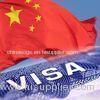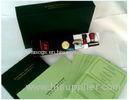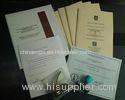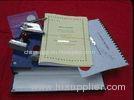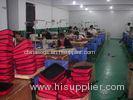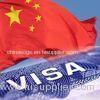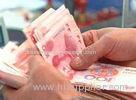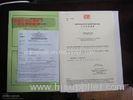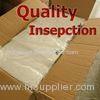|
WorldVillage Intl Co.,Limited
|
Chinese Business Consulting Service Foreigners Buying Property In China
| Place of Origin: | Hongkong, China (Mainland) |
|
|
|
| Add to My Favorites | |
| HiSupplier Escrow |
Product Detail
Chinese Business Consulting Ser
Chinese Business Consulting Service Foreigners Buying Property In China
Imagine you have lived in China for six months, and you are tired of having to pay rent. You begin to consider the possibility of purchasing an apartment for you and your family to live. Understanding the voluminous amount of Chinese regulations imposed on foreigners, you start to ask yourself, “am even I allowed to buy a house in China”? The following article will answer your question by discussing the requirements, the procedure, the costs, and the risks related to foreigners buying properties in China.
The housing market in China has been booming for the past decade. Homeownership has increased to a record high of 80 percent in China, and housing prices have been rising sharply across the country. Seeing the housing market performing so well and the quality of Chinese residential property surging, a growing number of foreigners who intend to stay in China for the long term are now entertaining the idea of purchasing their own properties. Unsurprisingly, due to the many laws and regulations that the Chinese government has imposed on foreigners buying properties in China, the process can be tricky and strenuous. In order to make a sound investment decision, foreigners should be well-aware of the requirements, the procedures, as well as the prices and the risks concerning purchasing a Chinese property.
The requirements
Generally speaking, foreigners who have worked or studied in China for at least a year are permitted to buy their own property. Specific requirements, however, vary from region to region. For example, in Shanghai, foreigners have to be married and be able to provide the local authorities with tax receipts for 12 of the past 24 months in order to purchase a house. The Beijing government requires foreigners to have paid social security and taxes for at least 5 years before they are allowed to buy a house. Despite the municipal differences, foreigners can only own one property across China, and the property has to be residential. Foreigners are also required to use their purchased property for dwelling purposes only and are banned from renting it out. If you want to purchase a commercial or industrial property, you have to incorporate a company in China first. Nonetheless, just like many other regulations in China, there are ways you can get around these tight restrictions. For example, the central government’s curbing regulations may not be strictly followed by local enforcement. By consulting a local attorney, you might be able to purchase a second home without any problems. Furthermore, for the purpose of property registration, you have to use a Chinese name, which can be translated phonetically from your native language. Therefore if you somehow manage to buy a second house in a different place than your first, you can just use a different Chinese name to register.
The process
Now, let’s get back to your case. Since you have only lived in China for half a year, you need to wait for at least another half year for you to qualify for property purchasing. Six months later, after residing in China for a year, you are finally qualified to buy a house. You are now wondering: how do I do this? Despite a few additional steps required to be taken by foreign house buyers, the process is actually very similar to that of Chinese buyers:
Step 1: You should go to the local Municipal Bureau of Public Security to obtain proof of your one-year residence in China. Meanwhile, you can begin your search for your ideal residence or alternatively, hire an agent to make the process go more smoothly.
Step 2: After you or your agent find a suitable property, you will need to submit a preliminary agreement in which you set out the terms and conditions of purchasing the targeted house. If the seller agrees with your proposal, a deposit of 1% of the agreed selling price should be paid to the seller.
Step 3: You and the seller draft and sign the ‘official sale contract,’ which has to be notarized if the buyer is foreign.
Step 4: Go to your local Foreign Office to have the purchase approved by the government. This step is unique for foreign buyers.
Note: if a mortgage is needed, you are required to take your signed and notarized contract, as well as other required documents, to the bank in order to secure a loan for your payment. You can take out a loan in either RMB or a foreign currency depending upon the specific rules of your bank. However, your initial deposit and a down payment of 30% of the selling price needs to be paid to the seller in RMB. Most foreigners wire their foreign exchange to their bank accounts in China. But remember, you have a foreign exchange quota of $50,000 every year. Therefore, you want to make it clear to your seller if you do not have sufficient cash in RMB and thus need time to remit and convert your currency.
Step 5: Your last step towards becoming a homeowner in China is to make a trip to the Deed and Title Transferring Office to transfer the title of the house under your name. After a few weeks, the Ownership Certificate will be issued to you and you will now become an official homeowner in China.
The cost
The process of buying a house can go very smoothly if you have all your documents and money ready. However, before you kick-off the process of property-purchasing in China, you need to carefully contemplate on where you want to buy your house. Since many foreigners who come to China for study or work have the freedom to relocate across China, it is important that you take into account the drastically varying housing prices in different Chinese regions when making your investment decision. Generally speaking, premier locations in first-tier cities such as San Li Tun in Beijing or the Bund in Shanghai tend to be the most expensive. According to Fangjia.com, the average price for a second-hand house in Beijing is more than 41000 yuan per square meter. This means, if you want to buy a used 100 square meters two bedroom apartment in an average location in Beijing, it will cost you over 4 million yuan, or more than 0.65 million US dollars. In contrast, the housing price in Chengdu, a booming second-tier city, averages 8600 yuan per square meter for a second-hand apartment – one fifth of the price in Beijing. Therefore, with the same budget, you can either choose a smaller property in an average location in Beijing or a large house in Chengdu’s premier location. The decision will be yours.
In addition, regardless of where you purchase your house, there are many fees and taxes to take into account. For example, a buyer is normally responsible for3%-5% of the selling price for deed tax, 0.5% for transfer fee, 7% for city maintenance and construction tax, and 0.2%-0.4% for legal fees. A foreign buyer also has to pay 0.01%-0.3% of notarization fee. In total, these taxes and fees can amount to 11.6% of the selling price, which is significant enough for you to consider while budgeting your purchase.
Tips and Risks
Indeed, the process of buying a house in China is neither easy nor cheap. Therefore we suggest that you take extreme caution and thoroughly examine the seller and target property before you sign any contracts. Also, you should keep in mind a few general tips about buying properties in China. First of all, the government has complete ownership over the land upon which all the properties are built. When you buy a house, it means the residential area is leased to you for a 70 year term. In addition, buying older properties can be risky because by law, the Chine









